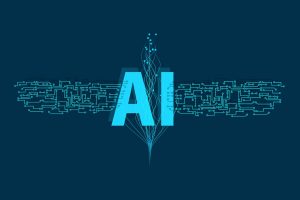Predictions for DevOps in 2015: The Year of Smart DevOps
![]() For some, it’s hard to pin down exactly what DevOps is, but it’s not hard to describe what it means: better collaboration between development and operations using a method designed to speed up the lifecycle of releases from development to deployment. DevOps practices have been evolving for several years now but there is obviously no one-size-fits all because the nature of team collaboration changes dramatically based on the nature of the teams and the business involved.
For some, it’s hard to pin down exactly what DevOps is, but it’s not hard to describe what it means: better collaboration between development and operations using a method designed to speed up the lifecycle of releases from development to deployment. DevOps practices have been evolving for several years now but there is obviously no one-size-fits all because the nature of team collaboration changes dramatically based on the nature of the teams and the business involved.
To better understand how DevOps may impact businesses in 2015, SiliconAngle surveyed a selection of industry executives who’s companies build DevOps tools, collaboration software, and orchestration systems.
The year 2015 and predicting the adoption and presence of DevOps practices
Many of the respondents see DevOps as a technology-driven cultural paradigm that has been well-tested and continues to deliver results. For the most part, many executives believe that 2015 will continue to not just see greater adoption of DevOps practices but more thought being put into adopting DevOps to emerging technology trends.
In 2014, Chef, maker of a very popular DevOps tool set, saw over 70% of sales occur in the Global 2000 businesses and expect this trend to continue.
“2015 will be a record-breaking year for DevOps adoption within large enterprises,” adds Jay Wampold, VP of Marketing, Chef. “We’ve already seen that DevOps culture has thoroughly permeated emerging web companies, as well, of course, as the established web giants.”
Rajat Bhargava, CEO, JumpCloud believes that the trend of DevOps into the enterprise space means that 2015 will be the year of standardization and certifications.
“As larger organizations are adopting DevOps, training and certifications will be required,” says Bhargava. “Organizations will want to have standards from which to judge their personnel, hiring decisions, and progress that they are making as a company. As much as the DevOps purists will resist the thought that DevOps can be ‘certified’, standards will be important to the growth of the movement.”
Challenges for DevOps in 2015
In 2014, DevOps practices have been affected by changing technologies, the emergence of significant automation controls and orchestration, and the continued expansion of the cloud, Big Data, and virtualization. If large enterprises are the next stomping ground for DevOps methodology the greatest friction will likely surround adopting not just to emerging technologies but to practices that account for older and traditional practices.
“As DevOps is adopted by larger enterprises, it faces the problem of how to integrate with long-standing systems and practices,” says Chef’s Jay Wampold. “Large enterprises have become large because of their ability to effectively deliver goods and services. They have substantial investments in technology, and they are subject to the burden of increasingly detailed regulatory compliance, but they also see the promise of high-velocity IT enabled by the cloud, automation and DevOps culture.”
![]() As a cultural approach, DevOps practices and tools can be largely agnostic to the underlying technology itself, but any implementation must draw on the capability to inspect activity in the environment and then predict and prepare based on good data. A large segment of DevOps tools delivers automation and configuration to relax stress on developers and operators during continuous delivery, this is the domain of Chef, but to support smooth operation data analytics will need to step up to the plate.
As a cultural approach, DevOps practices and tools can be largely agnostic to the underlying technology itself, but any implementation must draw on the capability to inspect activity in the environment and then predict and prepare based on good data. A large segment of DevOps tools delivers automation and configuration to relax stress on developers and operators during continuous delivery, this is the domain of Chef, but to support smooth operation data analytics will need to step up to the plate.
This performance-and-data driven paradigm has been borne out throughout 2014 and is expected to remain a challenge for DevOps in 2015.
“A performance analytics solution can also be useful in forecasting future capacity demands, and serve as the ‘single pane of glass’ for DevOps,” says Atchison Frazer, vice president of marketing, Xangati. He cites that the continued adoption of converged IT infrastructure means 2015 will be more virtualized, see more cloud, and delivery will occur on increasingly complex systems.
Analytics systems based on Big Data and machine learning provide a capable platform for analyzing trends, predicting events, and providing actionable information about problems as they arise. As these complex systems continue to proliferate, failure points, bottlenecks, and strange behaviors in production will not always appear during testing. To tackle this challenge, the day belongs to analytics.
“A continuing challenge for DevOps is the lack of reliable, automated early warning for failures to catch service-affecting situations as they unfold, coupled with the contextualization to pinpoint root case, i.e. is it a problem with the code or the infrastructure,” says Rob Markovich, Chief Marketing Officer, Moogsoft.
MoogSoft’s flagship product Incident.MOOG makes an excellent argument for the DevOps-as-culture approach that combines data and collaboration to better integrate development and operations teams. Many of the DevOps survey respondents also echoed similar sentiment that DevOps analytics and prediction must be combined with a method for combining expertise.
Both Frazer from Xangati and Markovich from Moogsoft argue that in 2015 DevOps teams will need strong analytics and predictive systems to keep their work on track when dealing with complex IT environments.
“When an issue does take place, it is incredibly difficult to correlate everything (e.g. all the events and alarms across the stack) about the problem, so that underlying root cause can be identified quickly. Without wide-spread adoption of these “first responder” systems alongside DevOps practices, production support teams will struggle to restore service quickly and avoid downtime revenue loss,” adds Markovich.
2015 the year of smarter DevOps
Looking at the tools and emergence of smarter analytics for DevOps teams dealing with automation, testing, deployment, and collaboration it looks like 2015 will be the year of “smarter DevOps.” With companies such as Chef, Puppet Labs, Salt, and Ansible building tools that enhance automation and configuration; Moogsoft, Xagati, and Splunk delivering analytics; and with cloud, Big Data, and converged IT continuing to change the role of virtualization the ecosystem is becoming more complex, but also smarter.
A message from John Furrier, co-founder of SiliconANGLE:
Your vote of support is important to us and it helps us keep the content FREE.
One click below supports our mission to provide free, deep, and relevant content.
Join our community on YouTube
Join the community that includes more than 15,000 #CubeAlumni experts, including Amazon.com CEO Andy Jassy, Dell Technologies founder and CEO Michael Dell, Intel CEO Pat Gelsinger, and many more luminaries and experts.
THANK YOU









